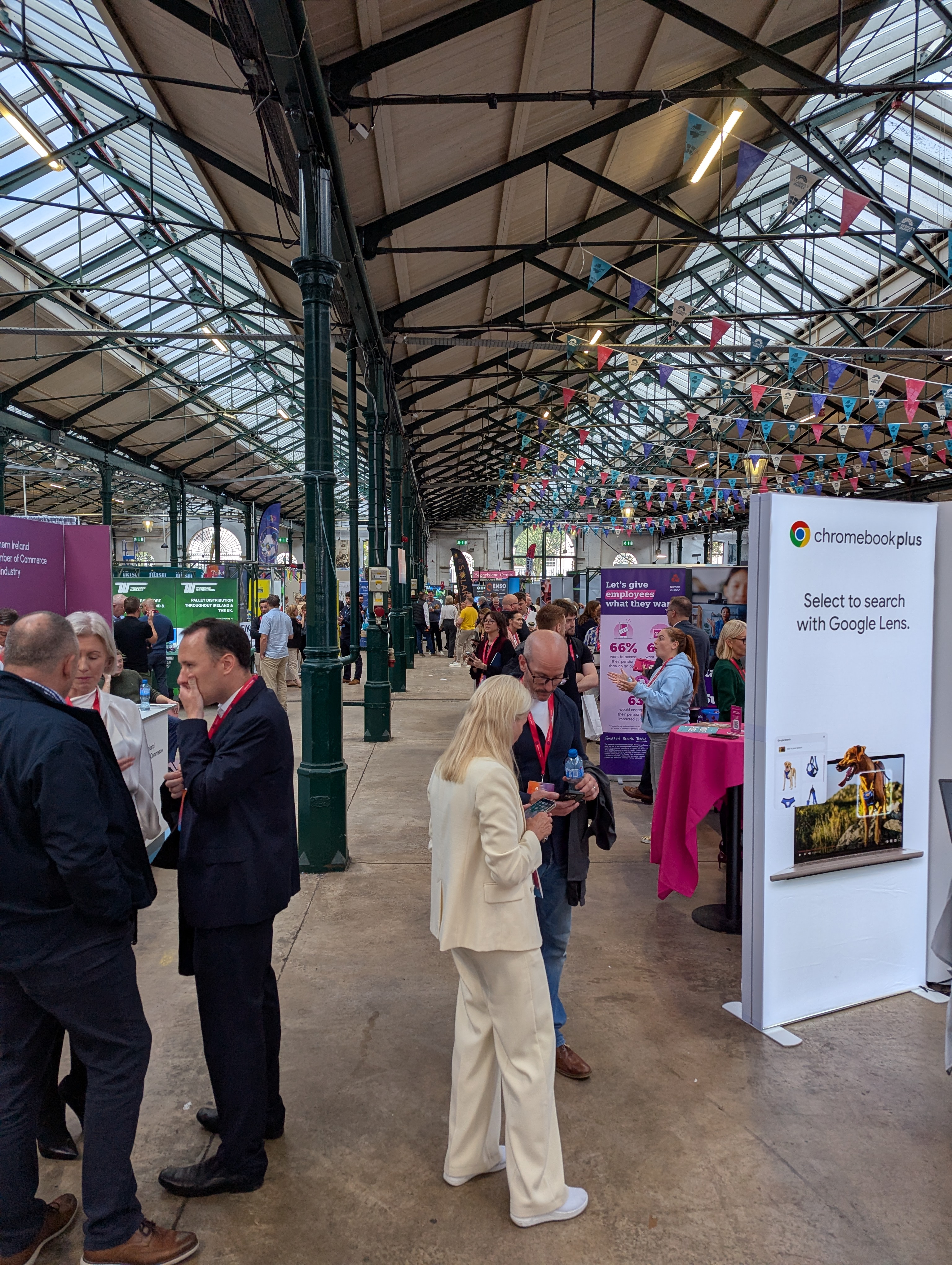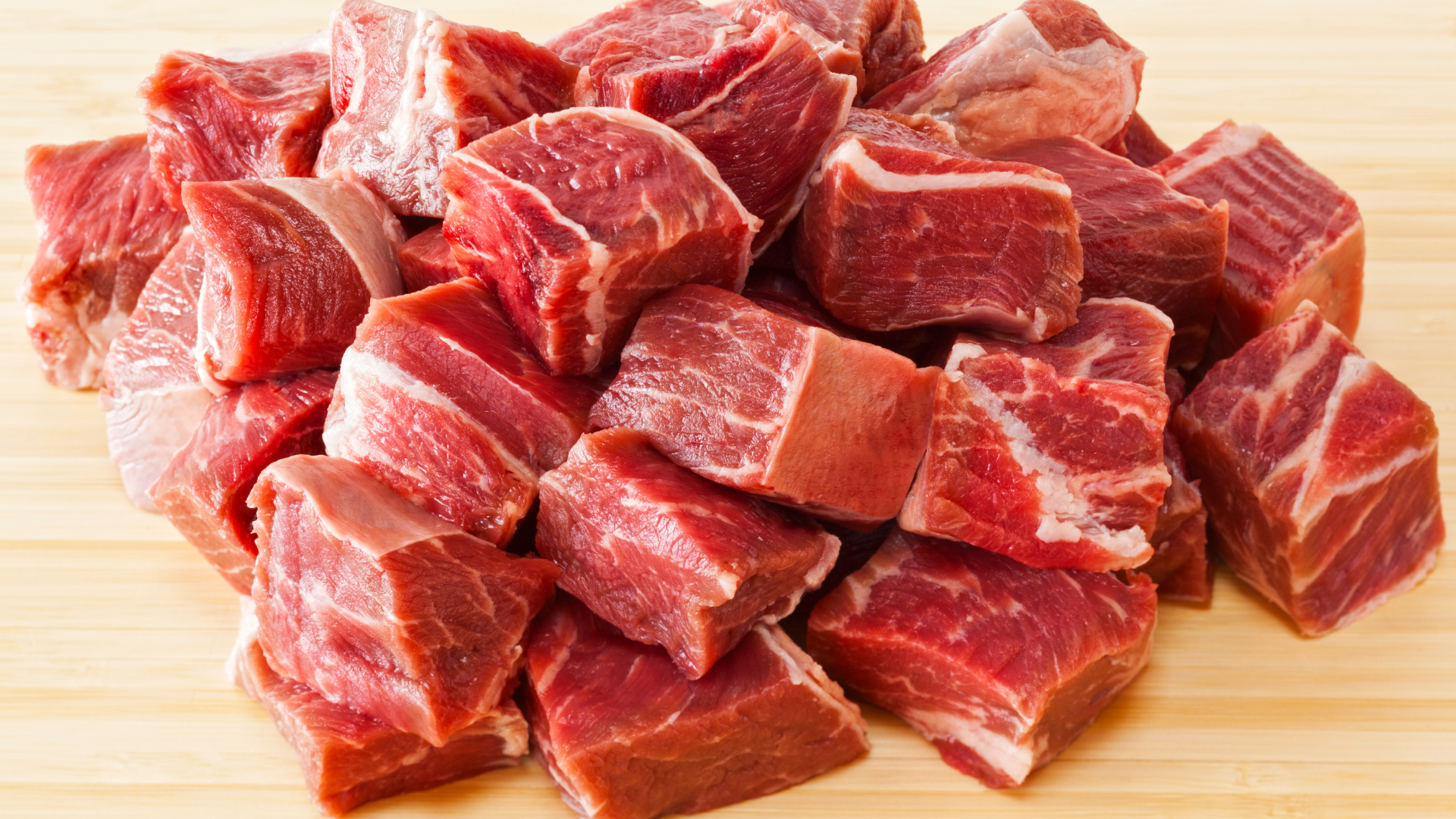We sat down with the Foods Connected CEO and Co-founder to get his advice on becoming food safe, regulation ready and coping with the food industry’s current inflationary pressures.
What was it that drew you to the food industry?
The food industry is very much part of who I am. I grew up on an arable, produce and livestock farm. So, it was always an area I had a natural interest in. I then went on to work in other areas like banking and recruitment, but none of these felt natural to me.
It wasn’t long before I found myself drawn back to the food industry. The hands-on experience I gained on the farm gave me a unique perspective on the entire food supply chain, from production to consumption.
Where did the idea for Foods Connected come from?
They always say the best ideas come from something you’re passionate about – and that’s completely the case here. From growing up on the farm, to my first real role working for the Foyle Food Group, I’ve always been passionate about food, where it comes from, how it's produced, and how it gets to the consumer.
I was working with my co-founders Paul Armstrong and Gary Tyre, and we started discussing the problems we saw the sector facing, things that weren't right that we thought we could solve through technology. Ultimately those late-night conversations after work turned into ideas that we thought we could turn into a business. And so that was really the initial foundation.
The hands-on experience I gained on the farm gave me a unique perspective on the entire food supply chain, from production to consumption.
Then we've just steadily built on that over the years. Our shared vision and complementary skills were key to turning those ideas into a successful business.
What are the biggest challenges the industry is facing right now?
I think the industry is currently facing multiple challenges from different angles.
There are major inflationary pressures on all parts of the supply chain at the moment. Consumers are facing a significant squeeze on what they've got available to spend. So, retailers, manufacturers and primary producers are all working hard to make sure food stays affordable for families.
Alongside that, there are other challenges such as security of supply; the changing weather patterns that can increase impact availability; and then you’ve got the geopolitical issues that have the potential to majorly impact supply as well.
On top of all that, you throw on technology changes, with things like AI coming through and how companies adopt it, plus the added risks in terms of cybersecurity. All these things combined make it a really challenging time for the food industry.
Businesses are trying to decide where their focus should be and what actions they should take to make sure they continue to do well. It's also crucial for businesses to stay agile and adaptable to navigate these challenges effectively.
What pain points are Foods Connected targeting for customers?
We're talking to them a lot about managing the current inflationary pressures and ensuring transparency across their supply chains. Many of our retail customers want a clearer understanding of the costs that make up their products and then managing that in partnership with their supply chain.
Transparency of the supply chain is also a driver. Previously businesses only wanted a one-up, one-down overview of their supply chain, but that's changing. A large number are now looking at how they can use supply chain mapping to get visibility of their second, third, fourth and fifth tier. This will give them a true understanding of where their products come from.
Foods Connected can help with all these areas. Being able to provide that technology alongside tools that enable them to capture and analyse data in those different parts of the supply chain is a real focus right now.
There’s also a lot of changing and new regulations coming in across different markets and I’m asked a lot about how businesses should handle this. My answer is always to make sure you've got digital systems, captured data and structured formats in place, so you can easily generate reports on your business. Then no matter what regulation comes at you, you're in a much stronger place to be agile and deliver the necessary data.
And what five things do you recommend businesses do to become compliant and food safe?
I do think the number one driver should be transparency. Businesses need to think about how to be transparent with their suppliers and transparent with their customers. That's the first step in making sure you are compliant and food safe.
Then it’s about layering that up in terms of thinking about your people and the culture you have in your organisation alongside your systems and the data within that.
And then on top of that, it's about having the analytics and reporting to be able to make the right decisions. Then, you can really drive that culture of compliance, food safety and transparency within your organisation and with your trading partners in the supply chain.
Businesses need to think about how to be transparent with their suppliers and transparent with their customers. That's the first step in making sure you are compliant and food safe.
I think that was probably five or six things, but together they should give any business an overall compliant and food safe approach.
Why is understanding your business data so essential to food safety?
Our industry moves so fast. Social media and news cycles push information into the world very, very quickly. If you don't have access to the right data around your food safety, you can’t make the right decisions with the right communications, and you could end up significantly exposed.
Then there’s the competitive aspect – understanding your data enables you to set goals and targets around improving your business and staying ahead of the competition. But you must make sure you've got the underlying foundations around the data from your systems to able to make those decisions.
The food industry has not always been the fastest at adopting new technologies. Is this a factor?
We are very aware that lots of businesses in the food sector are at different maturity levels in their digital journey. Some customers come to us just wanting to get the basics right. They want a digital approved supplier list, be able to do quality inspections, and get their product specifications delivered in a structured standardised format, with the ability to use tools like AI in the future.
Whereas other companies that come to us are further along and already have their building blocks in place.
If you don't have access to the right data around your food safety, you can’t make the right decisions with the right communications, and you could end up significantly exposed.
I always advise any business to start by assessing where they are today – understand this and everything else falls into place. Even though you'll have long-term aspirations and want to use AI to achieve them, think about the building blocks you need to put in place first. It's about getting the fundamentals around your data right first.
Once you can capture and manage your data efficiently, you’ll be able to do some cool, exciting things in the future.
AI is obviously something that you just touched on as a hot topic right now. Do you think businesses should be embracing artificial intelligence?
Definitely. It's an area that we're putting a lot of focus on within Foods Connected. Not just in terms of the software that we provide to our customers, but also how our entire organisation is running, how we equip our teams to do more and be more skilled in their roles.
So, yes, I think food businesses should really be thinking about what AI can do for them. But you have to be quite strategic about it. Think about what your return on investment is going to be from this artificial intelligence. Is it about cost saving? Is it about efficiency within their team? Is it about being able to drive more value through your offering to customers?
I always advise any business to start by assessing where they are today – understand this and everything else falls into place... It's about getting the fundamentals around your data right first.
There's a lot of opportunity around what AI can do within organisations. But it's essential to make sure your business understands its uses properly. A big focus of ours internally is about upskilling our leadership team so they know what AI is and how we're going to use it.
We're going to bring that thread right through our organisation right down to the graduates, so that we can become very much an AI-thoughtful company in terms of how we move forward. I think it’s important for every business – and in particular food businesses – to bring this into their ways of working.
What are your career highlights so far?
It's a really good question. There are so many different highlights to choose from. At Foods Connected, we're lucky to have some amazing global leading brands and companies working with us. Sometimes I have to pinch myself when thinking about what we've achieved as a business.
Then there’s the fact that we work globally across North America, APAC region and Europe. If you had asked me 10 years ago, did I think we were going to be there, I would probably just have been thinking about getting our first couple of customers over the line. So, it's quite amazing to have teams in those different regions.
I'm also really proud of how hard our teams work for our customers – and our customers stay with us because of it. We don't get it right all the time. No one does. But we've got people in our teams who strive to look after our customers and fix things if they encounter an issue.
And that leads me to probably the thing I'm most proud of in my career – and that’s supporting and guiding people in our organisation as they grow their own careers. We've had people who came to Foods Connected as placement students when we couldn't really afford to take them on and now they are leading operations and divisions within the company.
It’s that growth of individuals and people that really gives myself, and my co-founders Paul and Gary the biggest buzz. It's lovely to see people do well in their lives – and that's something that I will always take great pleasure in.
The thing I'm most proud of in my career - supporting and guiding people in our organisation as they grow their own careers.
And as we enter Q4, what are your plans for 2026?
We recently announced that we've had an investment made by leading private equity company, Apax. We're delighted to have them as a new leading partner, with Hilton Food Group continuing as a minority partner with us. This puts us in a strong place to drive the business further forward and faster. We can now access the resources that Apax has, from industry expertise to the financial side, which will allow us to make our product better and faster for our customers.
This will support our big focus for 2026, which is having a clear plan on how Foods Connected can continue to lead and excel in the industry, making sure that we move faster and better for our customers.
On September 16 2025, Roger will be joining Sharon Birkett, VP Global Operations at OSI Group, on stage at NAFS for a compelling session titled Connected for Safety: How OSI and Foods Connected Built a Data-Driven Food Safety Ecosystem. Find out more about the event here.
Overcome your food safety challenges with our Digital Food Safety and Quality Management tools. To learn more, download your free brochure:
.jpg)
Greer McNally
Greer has over 15 years’ experience writing about trends in the food and retail sectors. She lives in a little village by the sea in Northern Ireland and loves creating content that informs how people think about the food industry. A recent career highlight was interviewing the legend that is Dr Temple Grandin.
Stay up to date
Stay up to date
Browse Posts
- February 2026
- January 2026
- December 2025
- November 2025
- October 2025
- September 2025
- August 2025
- July 2025
- June 2025
- May 2025
- April 2025
- March 2025
- February 2025
- January 2025
- December 2024
- November 2024
- October 2024
- September 2024
- August 2024
- July 2024
- June 2024
- May 2024
- April 2024
- March 2024
- February 2024
- January 2024
- December 2023
- November 2023
- October 2023
- September 2023
- August 2023
- July 2023
- June 2023
- May 2023
- April 2023
- March 2023
- December 2022
- November 2022
- October 2022
- September 2022
- August 2022
- July 2022
- June 2022
- May 2022
- April 2022
- March 2022
- February 2022
- January 2022
- December 2021
/1.%20HubSpot%20Images/Roger%20New%201a%20(1)%20(1).jpg)

/Blog%20Headers/shutterstock_1927957907%20(1).jpg)
/Blog%20Headers/shutterstock_1845178195%20(2).jpg)
/Blog%20Headers/shutterstock_2133827717%20(1).jpg)
/Blog%20Headers/shutterstock_2473376713.jpg)
/Blog%20Headers/shutterstock_2247276303.jpg)





.png)
.png)
.png)
.png)
/Blog%20Headers/shutterstock_2390798777.jpg)
.jpg)
.png)
.png)
.png)
.png)